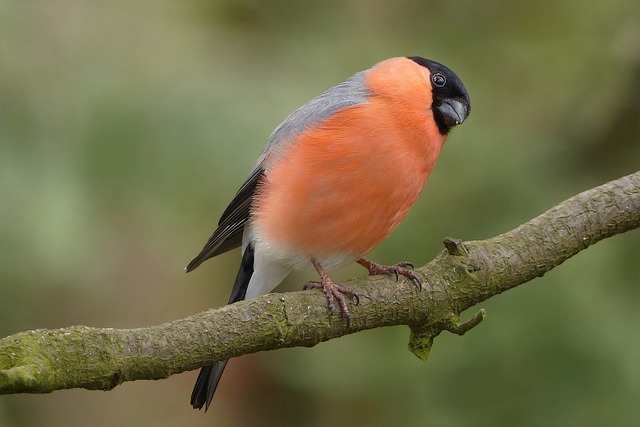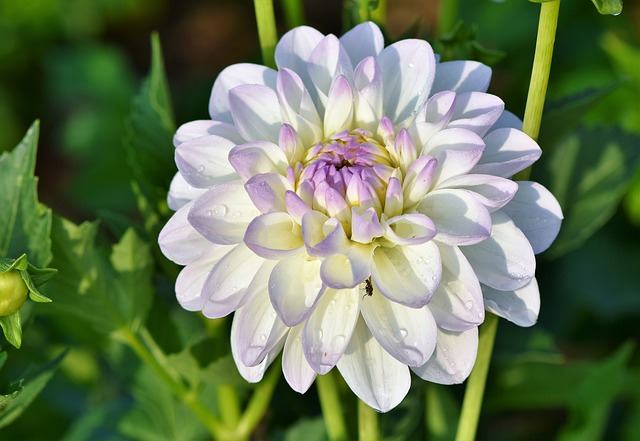Spring marks a fresh start with planning and planting, introducing cool-season flowers first, followed by warmer varieties as the weather improves. Prepare soil, space plants properly, water regularly, and establish a summer watering routine tailored to each plant's needs. Fall cleanup involves pruning, adjusting fertilizing, and mulching for winter protection. Seasonal garden maintenance includes spring prep, summer watering tips, fall cleanup, and winter protection like pruning and mulching for optimal year-round health. Implement strategies such as seasonal pest control, fertilizing by season, and mulching to adapt to each season's unique requirements.
Looking to transform your garden into a vibrant, ever-changing masterpiece? This guide is your roadmap for achieving a stunning, seasonal display. From preparing your spring garden with vibrant plantings to implementing effective summer watering tips and strategic fall cleanup, we cover everything you need to know for optimal garden maintenance. Discover the importance of pruning, fertilizing according to seasons, and protecting plants through winter with effective pest control and mulching techniques. Elevate your outdoor space with these essential seasonal care practices.
- Spring Garden Preparation: Planting for a Vibrant Season
- Summer Watering Tips: Ensuring Healthy Growth
- Fall Cleanup Strategies: Preparing for Winter
- Seasonal Pest Control and Mulching: Protecting Your Plants Throughout the Year
Spring Garden Preparation: Planting for a Vibrant Season

Spring marks a new beginning for your garden, and preparing it for this vibrant season is essential. Start by assessing the previous year’s growth, removing any dead plant matter, and planning where to position new seasonal flowers. Different plants thrive in spring, so consider cool-season flowers like daffodils and tulips that will bloom early, followed by warmer-season varieties such as roses and petunias.
Prepare the soil by adding compost or well-rotted manure for enhanced fertility. Ensure proper spacing to allow plants to grow without competition. Regular watering is crucial during this period, especially for newly planted seeds and seedlings. As summer approaches, establish a consistent watering schedule, considering the specific water needs of each plant type. This will ensure your garden remains healthy and vibrant throughout the season.
Summer Watering Tips: Ensuring Healthy Growth

Summer brings vibrant blooms and lush growth to your garden, but it also demands extra attention when it comes to watering. Overwatering can be as harmful as underwatering during this season. To ensure healthy plant growth, create a consistent watering schedule that caters to the specific needs of your garden’s plants. Aim for deep watering sessions less frequently; this encourages roots to grow deeply into the soil, making them more resilient.
Remember, different plants have varying water requirements. Check the labels or consult with local horticulturists to understand each plant’s thirst level and adjust your watering accordingly. Additionally, consider implementing mulching techniques to reduce evaporation and maintain moisture levels in the soil. This simple step can significantly enhance summer garden maintenance and ensure a lush, vibrant display of seasonal flowers.
Fall Cleanup Strategies: Preparing for Winter

As the seasons change, so should your garden maintenance routine. Fall cleanup strategies are essential for preparing your garden for the colder months ahead. One of the first steps is to prune any seasonal plants that have grown throughout the year, removing dead or yellowing leaves and branches to encourage new growth in spring. This process also helps to prevent pest issues from arising over winter.
In terms of fertilizing schedules by season, fall is an excellent time to give your garden a boost before it goes dormant. Consider using organic fertilizers to enrich the soil, ensuring your plants have the nutrients they need for robust growth when spring arrives. Additionally, implementing mulching techniques can protect plant roots from harsh winter conditions and help regulate moisture levels in the soil. This simple step can significantly enhance your garden’s resilience during seasonal changes.
Seasonal Pest Control and Mulching: Protecting Your Plants Throughout the Year

Seasonal garden maintenance is a key aspect of keeping your outdoor space vibrant and healthy throughout the year. One often-overlooked element is pest control, which can be tailored to each season to protect your plants from unwanted invaders. In spring, as new growth emerges, keep an eye out for common garden pests like aphids and caterpillars. Early detection allows for quick treatment with organic or chemical solutions, ensuring a robust start to the growing season. As summer approaches, regular watering becomes crucial, especially for newly planted flowers and shrubs. Adequate hydration fosters strong roots and encourages lush foliage, but be mindful not to overwater, as this can invite fungal diseases.
Transitioning into fall, it’s time for cleanup strategies to prepare for the colder months ahead. Remove dead plant matter and weeds, and trim back perennials to prevent pest and disease issues in the spring. Fertilizing schedules should also be adjusted by season; applying a balanced fertilizer in early fall promotes healthy growth and stores nutrients for next year. When winter sets in, consider protective measures like pruning seasonal plants that are sensitive to cold temperatures and covering delicate shrubs with mulch. Mulching not only protects roots from freezing but also helps retain soil moisture, reduces weed growth, and adds organic matter as it breaks down over time, contributing to healthier, more vibrant gardens come spring.
By implementing these seasonal garden maintenance practices, from spring garden preparation and summer watering tips to fall cleanup strategies and effective winter garden protection, you’ll create a vibrant outdoor space that thrives year-round. Remember to incorporate pruning of seasonal plants, appropriate fertilizing schedules by season, and strategic mulching for optimal results. With these simple steps, your garden will not only be beautiful but also healthy and thriving throughout all four seasons.
